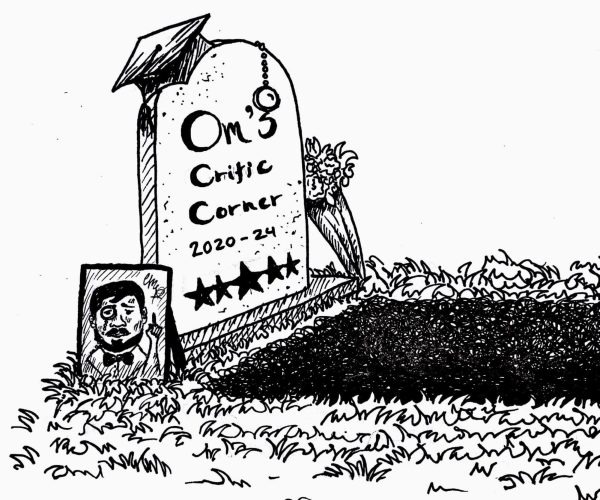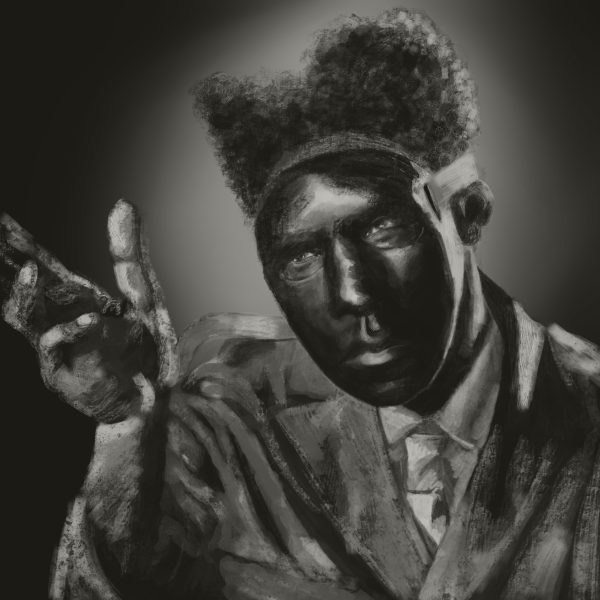Another year, another round of Grammys backlash
Beyoncé’s snub highlights the fading credibility and relevance of the Recording Academy
Illustrated by Ashley Jay Burdine
Harry Styles being attacked by bees at the Grammys, color version
If you haven’t already, it might be time to let go of the Grammy Awards as an actual authority on music. This year, the Recording Academy again failed to escape its regular accusations of racism and prejudice in its selection committees, and two weeks later, the discussions about who should’ve won Album of the Year continue.
This year’s show was arguably one of the most contentious and groundbreaking in a while. Kim Petras became the first openly trans woman to win a Grammy, and the award for Best New Artist went to jazz singer Samara Joy. Seventy-three-year-old Bonnie Raitt won Song of the Year, beating out Lizzo, Taylor Swift, Harry Styles, Adele and Beyoncé.
The most notable accomplishment of the night, though, was Beyoncé’s “Renaissance,” which won Best Dance/Electric Album, making Beyoncé the most-awarded musician in Grammy history. Despite this record-breaking mid-show success, Beyoncé did not snatch the coveted Album of the Year award. Instead, Harry Styles took the last Grammy of the night for his album “Harry’s House.”
Though plenty of fans believed Styles deserved the award, many took issue with a line in his acceptance speech in which he said, “[things like this] don’t happen to people like me very often.” Fans who know Styles’ typical spiel knew he was referring to his upbringing in Cheshire, England before he was thrust into the spotlight at a vulnerable age, but the Grammy stage wasn’t the place for such a vague line.
Styles’ speech appeared tone-deaf, considering that he won the award over several women and people of color. Last year’s Album of the Year winner was Jon Batiste, a Black artist, but the last time a Black woman won the award was Lauryn Hill in 1999. In fact, only three Black women have ever won the award — Hill, Natalie Cole and Whitney Houston — despite the Grammys being a 65-year-old award show.
The fact that no Beyoncé album has ever won — even though Beyoncé is the most-awarded artist by not only the Grammys but the BET Awards and Soul Train Awards, as well — is unfathomable.
The Grammys have been accused of racism many times over the years, with artists like Jay-Z, The Weeknd and Zayn publicly criticizing the Recording Academy, or even refusing to submit their music for consideration. Even when there’s not much controversy to be found, the rabid fan bases of nominated artists create controversy when they don’t get a win. Every year, it seems there’s more negativity surrounding the awards than celebration.
The Grammys aren’t meant to solely reflect popular opinion, but when the Academy consistently upsets large swaths of its audience, its credibility as an authority in the music industry becomes questionable. It’s difficult to celebrate the achievements of people like Kim Petras and Beyoncé without legitimizing the Academy’s decisions, but the award show would be much more enjoyable if we only focused on the good.
Just because the voting members of the Recording Academy decided Harry Styles’ album was better than Beyoncé’s doesn’t mean it has to be true; music is subjective, and even the industry professionals who make the decisions don’t have the “right” answer. But acknowledging subjectivity doesn’t write off the racial bias prevalent in the Album of the Year award’s history. Any nominee would have deserved the award, but the Beyhive, Beyoncé’s fanbase, also has every right to question why “Renaissance” didn’t take it.
Supporting artists means supporting their own endeavors, not what others tell you are noteworthy aspects of their career. Critiquing awards like the Grammys for their lack of recognition of Black artists is well worth our time, but we can simultaneously refuse to give the show any legitimacy when it upsets us. If nothing else, it’s an evening’s worth of fun red carpet looks and musical features, and when it’s over, we can put in our headphones to blast any album we want.

I am a senior French and Earth Systems Science double major from St. Louis, MO. When I'm not wearing my EIC hat, I am also a Chapel | Spiritual Life Fellow,...






